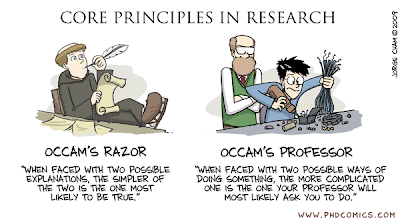Out With The Old Year, and In WIth The New

Well, it's the last finally the day of the year. So, here's wishing you all a safe, happy, and prosperous New Year. It's been a pretty eventful one in the Unknown Household - we had one son pass away from cancer, and had another one join the family. So, I can pretty much guarantee that 2010 will be less eventful for us than 2009 (at least I hope so). We finished out the old year yesterday by taking the Unknown Daughter up to Boston to see the Science Museum's Harry Potter Exhibit. Total Cost: Three Tickets - $93 Parking - $9 Various Junk from the Museum Store - $35 Overcooked and dried food from the Museum Food Court - $20 Hearing the Unknown Daughter say (wide-eyed) "This is Fantastic" - Priceless Luckily, our two nieces were home from college., They drove down the night before to baby-sit Wonder Boy for the day, so we got to go without munchkin in tow. But Boston traffic still sucked - it took us 45 minuted to go about 3 miles on Rte 93 (and this was






